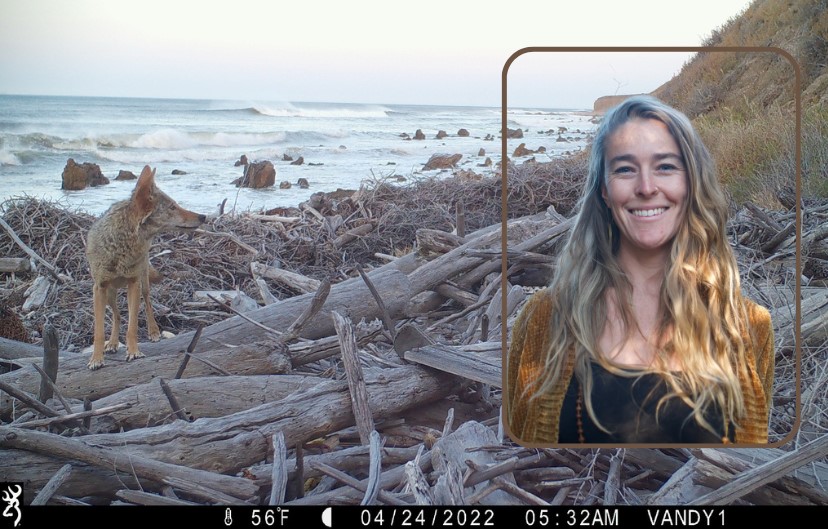Join Zoe Zilz, UCSB Doctoral student, to explore her research on beach and intertidal visits by terrestrial animals.
The lecture, sponsored by the Santa Ynez Valley Natural History Society with Solvang Library, is presented both in-person at the library, and via Zoom.
No reservation is needed to attend the lecture in-person. To register for the Zoom link, visit www.syvnature.org.
 In 2021, UCSB doctoral student Zoe Zilz was shown photos taken along the Gaviota coast by local residents, surprisingly revealing terrestrial wildlife near and in intertidal areas. Intrigued, Zoe set up 40 trail cameras in that area and further west, including Vandenberg Space Force Base and the Jack and Laura Dangermond Preserve. The diversity of wildlife the cameras revealed caused her research interests to veer from purely intertidal subjects to wondering about the ecological significance of beach and intertidal visits by terrestrial animals. She established Project ECOTONE to collect more data, which now include camera-recorded visits by many of our area's land mammal species, large and small. Scat analyses by project colleagues suggest that coyotes, especially, may be important members of our intertidal ecosystem. In her talk, Zoe will share trail cam photos and other data to show the the diversity of land animals that utilize local oceanic resources, and the role of energy exchange between oceanic and land habitats in our county.
In 2021, UCSB doctoral student Zoe Zilz was shown photos taken along the Gaviota coast by local residents, surprisingly revealing terrestrial wildlife near and in intertidal areas. Intrigued, Zoe set up 40 trail cameras in that area and further west, including Vandenberg Space Force Base and the Jack and Laura Dangermond Preserve. The diversity of wildlife the cameras revealed caused her research interests to veer from purely intertidal subjects to wondering about the ecological significance of beach and intertidal visits by terrestrial animals. She established Project ECOTONE to collect more data, which now include camera-recorded visits by many of our area's land mammal species, large and small. Scat analyses by project colleagues suggest that coyotes, especially, may be important members of our intertidal ecosystem. In her talk, Zoe will share trail cam photos and other data to show the the diversity of land animals that utilize local oceanic resources, and the role of energy exchange between oceanic and land habitats in our county.
Zilz graduated from UCSB, has a Masters of Science degree from Western Washington University, and is now a 6th year doctoral student in UCSB's Department of Ecology, Evolution, and Marine Biology, studying who eats who in California's intertidal zones and how human activities affect those interactions. A key goal is understanding the effects of wildlife loss and human disturbance to inform coastal management and conservation policies.